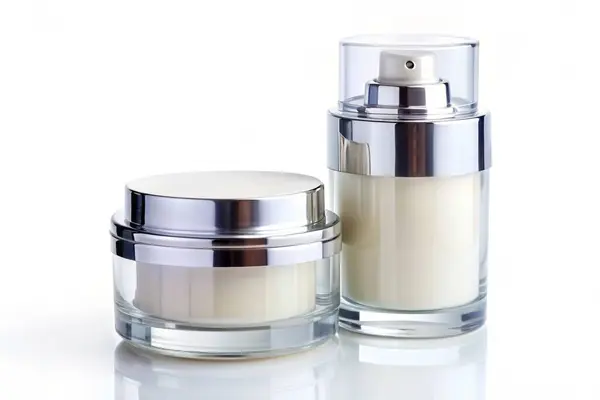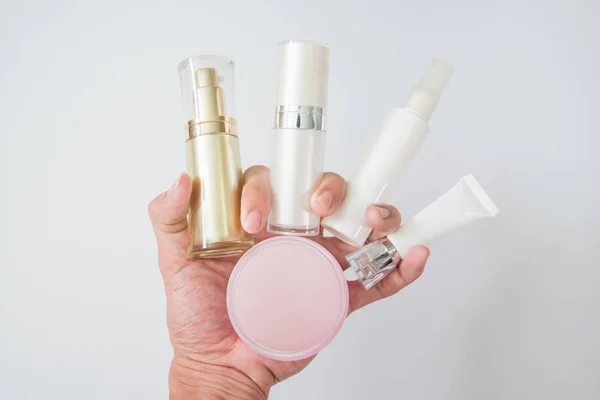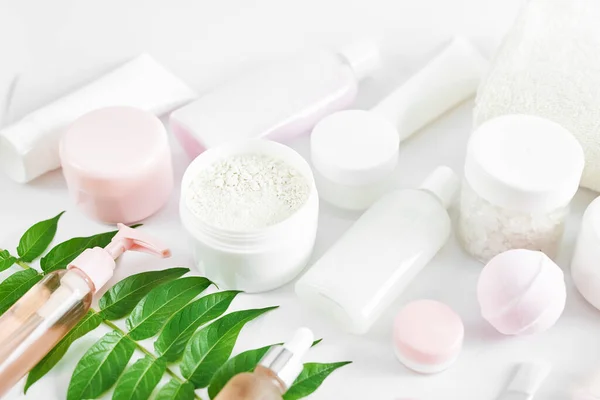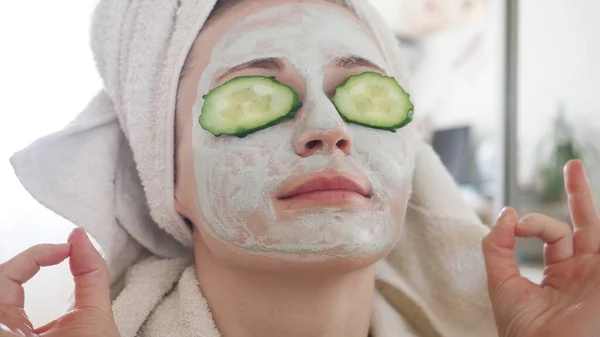Whether you’re dealing with serums, toners, moisturizers, or sunscreens, each product has a specific role and knowing the right order ensures maximum results. Ready to transform your skincare routine? Let’s break down the perfect step by step guide!

What Order Do You Do Skincare
The best order for skincare is: cleanse, tone, treat, moisturize, and protect. Start with a gentle cleanser to remove dirt and oil. Then, apply toner to balance your skin’s pH. Follow up with treatments like serums or spot treatments, and finish with a moisturizer to hydrate. Finally, use sunscreen during the day to protect from UV damage.
Cleanser
Start your skincare routine by cleansing your face. Cleansing helps remove impurities, dirt, and makeup. A good cleanser preps your skin to absorb other products better. Use a gentle face wash that suits your skin type whether it’s oily, dry, or sensitive.
Toner
After cleansing, apply toner. Toners are essential for restoring your skin’s pH balance. They can also help tighten pores and refresh your skin. People often use toners to prepare their skin for better absorption of serums and treatments.
Treatment
Next, use your targeted treatments. Serums are a common choice. They are packed with active ingredients like vitamin C, hyaluronic acid, or retinol. These treatments focus on specific skin concerns like aging, acne, or pigmentation. Apply this layer before moisturizing to let your skin absorb the nutrients fully.
Moisturizer
After treatments, lock in hydration with a good moisturizer. Moisturizers are crucial for keeping your skin hydrated and soft. They create a barrier on your skin, preventing moisture loss throughout the day or night.
Sunscreen
During the day, the last step should always be sunscreen. Sunscreen is vital to protect your skin from harmful UV rays. A broad spectrum sunscreen with at least SPF 30 is ideal. Apply it generously to prevent premature aging and reduce the risk of skin cancer.

Step-by-Step Guide: The Correct Skincare Routine Order
Morning Skincare Routine: Preparing Your Skin for the Day
A morning skincare routine focuses on hydration, protection, and prepping the skin for makeup, if needed.
Cleanser
Start your routine by cleansing your face to remove oil, dirt, and impurities. A clean base is essential. Choose a gel, foam, or oil based cleanser, depending on your skin type. For oily skin, gel or foam works best, while dry skin may benefit from oil cleansers.
Toner or Essence
Toners help balance the skin’s pH and prep it for the following products. Essences provide hydration and boost the absorption of serums and moisturizers.
Serums and Actives
Serums target specific skin concerns like hyperpigmentation, fine lines, or dehydration. Popular ingredients include Vitamin C for brightening and Hyaluronic Acid for hydration. Choose between water-based serums (ideal for oily skin) or oil based ones for dry skin.
Moisturizer
Moisturizer locks in hydration and protects the skin barrier. Lightweight moisturizers are suitable for oily skin, while heavier creams provide better hydration for dry skin.
Sunscreen
Always finish your morning routine with sunscreen. It protects your skin from harmful UV rays and prevents premature aging. Use a broad spectrum SPF. For sensitive skin, physical sunscreens are a better choice, while chemical sunscreens work well for normal skin.
Night Skincare Routine: Repairing and Rejuvenating Skin
Your night routine should focus on recovery, repair, and deep hydration.
Double Cleansing
Start with an oil based cleanser to remove makeup and sunscreen. Follow with a water based cleanser to clear away any residual dirt and sweat.
Toner or Exfoliant
A toner helps soothe and balance the skin post cleansing. If you’re exfoliating, choose between chemical exfoliants (AHAs or BHAs) or physical exfoliants. Incorporate exfoliation 2 3 times per week to avoid over exfoliation.
Treatments and Serums
At night, use treatment serums like Retinol for anti-aging or Peptides for skin repair. Layering different serums helps boost their effectiveness.
Eye Cream
The delicate eye area benefits from special care. Use hydrating or anti-aging eye creams to target fine lines and puffiness.
Moisturizer or Night Cream
Night creams are richer and more hydrating than day moisturizers. They often contain occlusive agents that lock in moisture overnight.
Optional: Facial Oils
Facial oils can provide an extra layer of moisture for dry or combination skin. Apply them after your moisturizer to seal in hydration.
Weekly Treatments: Masks, Peels, and Exfoliants
For extra care, add masks or peels to your routine once or twice a week. Use exfoliating masks to remove dead skin cells and improve texture. Hydrating or clay masks provide deep cleansing and moisture. Avoid over exfoliating to maintain your skin’s natural barrier.

Customizing Skincare Routines Based on Skin Type
Tailoring your skincare routine to your skin type is crucial for maintaining healthy skin. Here’s how to create the perfect routine for different skin types.
Skincare Routine for Oily Skin
Oily skin benefits from products that balance oil production. Use lightweight, non comedogenic formulas to avoid clogged pores. Ingredients like niacinamide and salicylic acid control oil and prevent breakouts. Always opt for oil free moisturizers and gel based cleansers to keep the skin clear and shine-free.
Skincare Routine for Dry Skin
Hydration is key for dry skin. Look for products with hyaluronic acid and ceramides to retain moisture. Heavy moisturizers with occlusives like shea butter create a protective barrier. Gentle, hydrating cleansers prevent stripping the skin of natural oils, ensuring lasting hydration.
Skincare Routine for Combination Skin
Balancing dry and oily areas is essential for combination skin. Use lightweight formulas on oily areas and heavier creams on dry zones. Layer products like hydrating serums for dry patches and mattifying gels for oily T zones. This approach helps address different needs in one routine.
Skincare Routine for Sensitive Skin
Sensitive skin requires gentle, fragrance free products. Opt for formulas with soothing ingredients like aloe and chamomile. Always patch test new products to avoid reactions. Avoid harsh ingredients like alcohol and artificial fragrances, which can trigger irritation and redness.
Skincare Routine for Acne-Prone Skin
For acne prone skin, key ingredients like salicylic acid and benzoyl peroxide work best. These ingredients unclog pores and reduce inflammation. Use oil free, non irritating products to avoid worsening breakouts. Incorporate a lightweight moisturizer to maintain hydration without adding excess oil.
Common Mistakes in Skincare Routine Order
Many people make mistakes in the order of their skincare routine. Applying products in the wrong sequence can reduce their effectiveness. A common issue is over layering, which can clog pores or cause irritation. Skipping essential steps like cleansing or moisturizing can also disrupt the skin barrier.
Another mistake is mixing incompatible ingredients, such as Retinol and Vitamin C, which can lead to skin sensitivity. Following a proper routine order is crucial for healthy, glowing skin. Always layer from thinnest to thickest products to maximize absorption.

FAQs
What is the correct order to apply skincare products?
The ideal skincare routine follows this order: cleanser, toner, serum, eye cream, moisturizer, and sunscreen. Always apply from lightest to heaviest textures.
Do I need to apply sunscreen last?
Yes, sunscreen should be the final step in your daytime routine. It acts as a shield, protecting your skin from UV damage after your skincare layers.
Should I use toner before or after a serum?
Toner comes right after cleansing. It preps your skin to better absorb serums and moisturizers that follow.
Can I skip any steps in my skincare routine?
Yes, depending on your skin’s needs. A basic routine includes cleanser, moisturizer, and sunscreen. You can skip serums or toners if they don’t suit you.
When do I apply eye cream in my routine?
Eye cream should be applied after serum but before moisturizer. It targets the delicate skin around the eyes, preventing fine lines and puffiness.
Do I apply oil before or after moisturizer?
Apply oil after moisturizer. Oils help lock in moisture, acting as the final seal in your routine.
Can I use the same products day and night?
Not always. For daytime, prioritize sunscreen and antioxidants, like Vitamin C. At night, focus on repairing the skin with ingredients like retinol and hyaluronic acid.
Do I need to double cleanse every day?
Double cleansing is recommended if you wear makeup or sunscreen. Start with an oil based cleanser followed by a water-based one to remove all residue effectively.
What happens if I use products in the wrong order?
Using skincare in the wrong order can reduce their effectiveness. Light products won’t penetrate if heavier creams are applied first.
How long should I wait between each skincare step?
Wait 30 seconds to a minute between steps to let each product absorb into your skin properly before applying the next.
Conclusion
In skincare, the order of product application is crucial for maximizing effectiveness. Begin with cleansing to remove dirt and impurities, followed by toning to balance the skin’s pH. Next, apply treatments like serums or spot treatments, which target specific concerns such as acne or wrinkles.
Moisturizers come next to hydrate and lock in moisture, and finally, sunscreen should be applied during the day to protect from harmful UV rays. Following this sequence ensures that your skin reaps the full benefits of each product, leaving it healthy and radiant.

